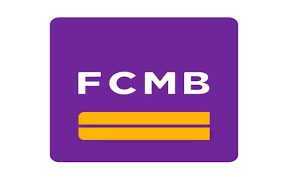FCMB Easy Account Launched, Your Phone Number is now Your Account Number

First City Monument Bank (FCMB) has taken another major leap in the retail and mobile banking segments of the Nigerian financial services industry. It has launched a new product called FCMB Easy Account. Described as banking made accessible to all, a significant and value-added feature of this product is that the telephone numbers of the customers, without the first digit, serve as their respective account numbers. The Account is an enhanced version of its *329# Unstructured Supplementary Service Data (USSD) platform. First City Monument Bank (FCMB) has taken another major leap in the retail and mobile banking segments of the Nigerian financial services industry. It has launched a new product called FCMB Easy Account. Described as banking made accessible to all, a significant and value-added feature of this product is that the telephone numbers of the customers, without the first digit, serve as their respective account numbers. The Account is an enhanced version of its *329# Unstructured Supplementary Service Data (USSD) platform.
In a statement, the Bank explained that FCMB Easy Account has been designed to make banking accessible to all Nigerians and will help to achieve the laudable goal of financial inclusion for most Nigerians as set by the Central Bank of Nigeria (CBN). It is a product open to all, particularly to meet the needs of low-income earners and the unbanked segment of the society. It enables the account holders have access to convenient and secured financial services, irrespective of their locations.
The Bank stated that the self-service, stress-free and secured FCMB Easy Account, available on all the Global System for Mobile (GSM) networks in Nigeria, (Globacom, MTN, 9Mobile and Airtel), enables everyone anywhere in Nigeria open an FCMB Easy account from his or her location, by dialing *329# from their mobile phones and following the instructions. The development enables Nigerians who wish to open accounts and carry out banking transactions on their mobile phones do so from any location-rural, urban and remote, even if there are no banks physically located at the area. Internet service availability which has been a major constraint to mobile banking service access is not required for FCMB Easy Account as the account operates on the USSD platform.
FCMB Easy Account customers can send and receive money to and from friends, families and business partners across all banks in Nigeria. FCMB Easy Account customers can also deposit funds into their accounts at more than 100,000 agents and banking locations of FCMB and other banks and mobile money operators in Nigeria. FCMB Easy account customers can also use their accounts for airtime purchase, bill payments and other payments.
FCMB’s Managing Director Mr. Adam Nuru, commenting on the new offering said what the Bank has unveiled isa part of its long-term strategic plan to embark on a digital transformation initiative where it aspires to scale business operations, build capabilities and find the best way to simplify banking for customers, using technology.
The CEO, who was represented by the Bank’s Executive Director, Finance, Mrs. Yemisi Edun, said, “every day we are developing digital innovations and ideas that will make our relationship with our customers seamless in so many areas including Channels Management among others. FCMB Easy Account is one of such innovative offerings that make Banking services available across all informal segments, particularly the unbanked. It is banking made easy. All you need is to own any type of mobile phone, and you do not even necessarily need to buy data”, Nuru reiterated.
The Executive Director, Retail Banking of FCMB, Mr. Olu Akanmu, also commenting, said the FCMB Easy Account forms part of the Bank’s core strategy to innovate and expand its service channels by promoting and deepening financial inclusion and the cashless policies of the Central Bank of Nigeria (CBN).
‘’The FCMB Easy account helps to achieve the goal of national financial and social inclusion, where all Nigerians have access to formal financial services and its benefits, no matter their situation or location. In FCMB, we are determined to be a critical part of the effort to create a more inclusive society of shared prosperity, where all Nigerians, informal traders, micro SMEs and small holder farmers in agriculture are connected to the shared prosperity that formal financial services engender”, he stated.
In his comment, Mr. George Ogudu of Central Bank of Nigeria, CBN’s Strategy and Financial Inclusion Secretariat, commended FCMB for taking the lead in developing the product in the Nigerian banking industry. While endorsing the FCMB Easy Account, he stated that, “FCMB has taken a giant stride to prove its commitment to bring more Nigerians into the Banking industry with the launch of this product. The fact that it is targeted at those who have never owned a bank account and serves as a convenient opportunity for these category of Nigerians to do so is very laudable. We consider this as a further monumental support towards the full realisation of the CBN’s financial inclusion initiative. We appreciate FCMB for consistently being very innovative and our partners in progress”.With a clear understanding of its market and environment, FCMB is well positioned to continue to create value by delivering exceptional services, while enhancing the growth and achievement of the personal and business aspirations of its customers.
- Published in Uncategorized
Establish Expertise Inside Your Company
In a competitive marketplace, developing a reputation as an expert is one of the best forms of career insurance. Having a blue-chip personal brand is powerful for international thought leaders, who can leverage it to command exorbitant speaking fees. But it’s also helpful for professionals who work inside corporations, where a great reputation can bring coveted promotions and opportunities. Here’s how you can become recognized for your expertise inside your company.
First of all, it’s important to recognize that you don’t have to start out as a worldwide expert. Too many people discount their value. You can coach others on writing better business memos even if you’re not Shakespeare, or lead an office running group even if you’re not Usain Bolt.
Michael Leckie was a vice president of human resources for a prominent research company when he developed an interest in coaching. Although the subject was related to his job, it wasn’t part of his actual responsibilities—he simply began studying it because he wanted to. He started out as a novice, compared to worldwide authorities, but he quickly grew to be one of the most knowledgeable people about talent development within his company. “When you start building your brand in a corporation, it’s a confined space,” he told me in an interview for my new book, Stand Out. “You don’t need to be the best in the world; you just need to be the best one there. You can be a big fish in a little pond, and if you’re the biggest fish in that environment, you get bigger and can then start to do things outside the organization.”
In these early stages, it’s important to be clear about what you know and what you don’t. If you try to prematurely position yourself as an expert who can compete with industry giants, you risk losing credibility when you’re faced with a question or challenge you’re unsure about. But if you’re honest about where you are in the process – experienced with some facets and still learning others – then others are likely to respect you for your superior knowledge and not hold it against you if you don’t know everything.
As your profile grows, it’s also important to ensure that your company understands the value of your public brand. This is especially important if, like Leckie, you’re cultivating expertise on a subject that isn’t part of your core responsibilities. “My world is [the firm], so I need to have my brand aligned to what matters to them,” says Leckie. Developing his coaching brand began to raise Leckie’s professional profile in general, which eventually to led to an invitation to give a keynote talk for a client’s conference of technology leaders. The keynote was an exciting opportunity for him, but his superiors could have viewed it with suspicion (Why is he getting all this attention? Why isn’t he concentrating on his real job?) if he hadn’t taken the time to show them how it was relevant to the company’s business objectives.
“With outside things, you have to make sure you’re explaining them [in terms of] what matters in the organization,” said Leckie. “Otherwise, they start to look, to some, like a distraction.” He didn’t assume his boss’s boss would understand why it was important for him to speak at the conference – rather, Leckie explicitly articulated the keynote’s business benefits to him. “What he’ll be excited about is great interactions with the client,” Leckie said, “and that I’m out there developing business and increasing the relationship they have with us.”
Finally, it’s important to recognize when it’s time to expand what you’re known for strategically. “Sometimes your brand is more happenstance than thoughtful,” says Leckie. “It may be about things you like, but it’s not necessarily leading you where you want to be moving toward.” Leckie realized he’d been so successful at building his expert reputation around coaching and talent development that those skills — even though they were valuable for an HR leader — were beginning to overshadow others that were deemed more critical inside his company. “My brand got established and it opened the door, but it also began to shut other doors. It became clear to me that while I was really good at building and driving a team that got great business results, when people were talking about me, it wasn’t about business results; it was about the more unique elements of my brand [such as coaching].”
That’s why he decided to make coaching a “sub-brand.” In other words, he didn’t abandon it, but he started emphasizing it less in favor of talking about his ability to drive the bottom line. “It’s giving people a language of how to think about you subtly,” he says, by shifting the topics you discuss and by enlisting friendly ambassadors to highlight your relevant accomplishments. That’s been especially important to him as he’s risen in the ranks of his company and now holds a broader leadership role.
It’s slightly trickier for professionals to build a strong personal brand inside a company, as compared to entrepreneurs or other free agents. You have to balance the unique mix of your skills and interests with your company’s needs and sensibilities. But when done right, cultivating a brand as a “local expert” inside your company can enhance your professional reputation and ensure you’re valued the way you should be.
- Published in Blog, Uncategorized

